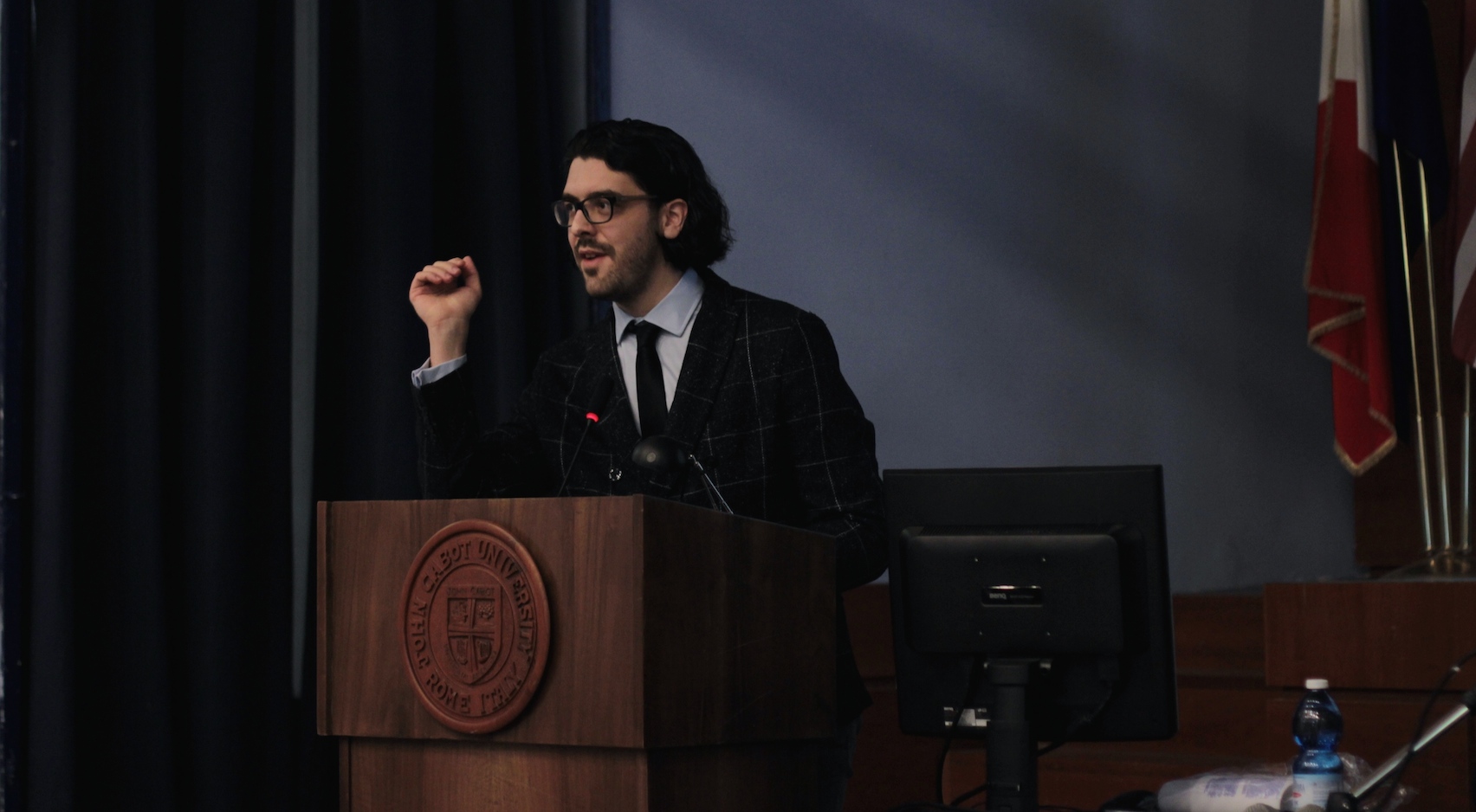

In March 2016, Dr. Svatos had the opportunity to address the students of the John Cabot University in Rome with his speech on alternative dispute resolution in 21st century. A gloss by experienced lawyer, John Fanti, as well as the discussion with the students took place as a part of the lecture. The whole event was moderated by Pal Belenyesi and kindly sponsored by the Embassy of the Czech Republic in Italy.
The JCU has informed about the seminar in the following way:
On Monday, March 7th, the Guarini Institute together with the JCU Business Department had the pleasure of hosting a lecture on “Resolution of Business Interests in the 21st Century” with Dr. Martin Svatos.
Dr. Svatos is one of the leading Czech mediators and arbitrators. With a success rate of more than 85% of his cases, he is considered one of the most successful mediators in Central Europe.
His presentation explored the many benefits of mediation in legal conflicts between companies and collaborators. Dispute resolution and mediation are very valuable in today’s international business relationships.
Most companies today have business relationships with multiple partners and collaborators. Different parties may have different points of view and interests, and that’s when well skilled arbitration by lawyers is important, because too often there are misunderstandings and litigations.
Svatos quoted former US Supreme Court judge Warren E. Burger, saying “the best service a lawyer can perform is to keep their clients out of court.”
Svatos listed and explained the five main resolution approaches: competition, consensus, compromise, avoidance, and accommodation. He asked the people in the room to vote for which option they thought was the best in negotiation. The results were surprising: the majority voted for compromise and accommodation, whereas Svatos confessed to using avoidance the most.
To the question of why mediation works, Svatos answered with a quote by mediator David Plant, “we have to start by defining the process as part of the problem.”
Svatos ended his presentation by saying that every human being has two ways of thinking: a rational analytic thinking and an emotional impulsive thinking. Some people might use one more than the other, but every one thinks in both ways. He gave a very simple example to prove it: A man offers you $100, or gives you the option to get $10 once a month for a year. What would you choose?
Some people chose the second option, since the final amount of money would be $120: this is rational analytic thinking. Others chose to have $100 right away: this is emotional impulsive thinking. Every one will consider both options, since both analytical and impulsive ways of thinking are inside of us, and then decide which of the two sides to listen to more.
The lecture ended with some space for students and members of the audience to ask questions. The most important question that was asked regarded the impact litigation has on the public image of a company: should it be avoided for the sake of a company’s image? Since litigation is often seen negatively, if a company is involved in big lawsuits and conflicts, its image will be affected. This is when conflict resolution skills come into play and are absolutely fundamental for relationship building.
For more information go here.